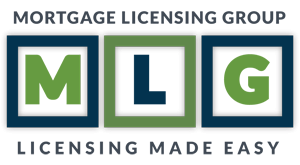Idaho, Utah & North Carolina: Mortgage Broker Licensing Requirements
Mortgage brokers play a critical role in helping clients secure financing for their homes, but becoming a licensed mortgage broker isn’t as straightforward as some might think. With over 25,000 mortgage brokers currently employed across the U.S. according to Zippia, competition is fierce, and meeting state-specific requirements is essential to stand out.
If you’re considering getting licensed in Idaho, Utah, or North Carolina, you’ll find each state’s process comes with its own set of challenges. For instance, Idaho’s detailed reviews demand meticulous preparation, while North Carolina’s rigorous timelines test even the most organized applicants. Utah? It’s all about navigating multiple licensing entities.
This guide unpacks the mortgage broker licensing requirements in these states to help you make sense of the rules, avoid costly mistakes, and move one step closer to achieving your career goals.
What is the Licensing Process?
Becoming a licensed mortgage broker involves more than just submitting paperwork. Each state has its own regulations, fees, and steps—commonly referred to as state-specific mortgage broker requirements.
Most states use the Nationwide Mortgage Licensing System (NMLS) to streamline parts of the process, but applicants still need to pay close attention to detail.
Typical licensing steps include:
- Completing pre-licensing education
- Passing a criminal background check
- Submitting fingerprints
- Undergoing a credit check (required in many states)
Pre-licensing education generally includes at least 20 hours of coursework covering topics such as ethics, federal lending laws, and nontraditional mortgage products. Once completed, applicants must pass the SAFE Mortgage Loan Originator (MLO) Test.
Licensing costs vary widely and are subject to change. Some states require only a few hundred dollars, while others can exceed $5,000 when you factor in application fees, background checks, credit checks, and other administrative expenses. It is best to confirm these details with your licensing consultant.
Idaho Mortgage Broker Requirements
Idaho is known for having a thorough review process for mortgage broker applications. This is a state that prioritizes compliance, so applicants need to ensure their documentation is current and complete before submission. The state requires licensing for brokers, lenders, and servicers, but does not require a surety bond or a named Qualified Individual (QI).
Brokers in Idaho should be prepared to wait, sometimes months, for their license approval. This patience often pays off, as Idaho has a growing housing market with increasing demand for qualified mortgage professionals.
Interestingly, Idaho does not mandate a physical office within the state. This flexibility makes it appealing for brokers who work remotely or operate across multiple states.
Utah Mortgage License Guide
Utah’s licensing process stands out because it is overseen by two entities: the Division of Real Estate (DRE) and the Department of Financial Institutions (DFI). Each has slightly different rules, so it’s essential to know which license suits your business model.
The DRE requires brokers to submit a separate license for every trade name they use. This adds an extra step that could be overlooked if not properly planned for. Brokers with the DRE must also appoint a Qualified Individual who holds a Principal Lending Manager license. The PLM designation requires 40 hours of additional coursework, separate from the usual NMLS requirements, and passing a specific state exam.
On the other hand, the DFI does not impose trade name restrictions or require a QI.
Utah’s licensing rules reflect its diverse housing market, with needs ranging from urban developments in Salt Lake City to rural housing. The Utah mortgage license guide highlights these nuances to help brokers decide how to proceed based on their specific business goals.
North Carolina Broker Licensing
North Carolina is widely considered one of the toughest states for mortgage licensing. The application process requires meticulous preparation because the state allows only 30 days to respond to licensing queries before applications are deemed withdrawn. This tight timeline means any delays could force applicants to start over entirely.
A named Qualified Individual is mandatory for all license types in North Carolina. The QI must meet strict requirements, including:
- Relevant experience
- Education
- Passing state-specific exams
In addition, mortgage brokers need to provide an Anti-Money Laundering (AML) and Bank Secrecy Act (BSA) policy during the application process.
Considering the financial and operational requirements, broker licensing in North Carolina is often regarded as challenging—yet highly rewarding—for those prepared to meet the state’s rigorous standards.
Tips for a Successful Licensing Application
Navigating these processes can feel overwhelming, especially when dealing with multiple states. That’s why staying organized is critical.
Here are some mortgage license application tips to help you stay on track:
Keep Documentation Updated
Before applying, ensure all documents, such as financial records, criminal background checks, and credit reports, are current. Missing or outdated paperwork often causes delays.
Understand Specific State Rules
Familiarize yourself with the individual requirements for each state, as they can differ significantly. For example, Utah’s dual-entity system or Idaho’s no-QI requirement might surprise applicants who don’t prepare ahead of time.
Invest in Pre-Licensing Education
Completing your coursework and passing the national exam early can give you a head start. Choose an NMLS-approved provider with high pass rates.
Work with Licensing Experts
Many brokers save time and avoid errors by consulting professionals who specialize in state-specific mortgage broker rules. These services can help ensure accuracy and compliance.
Master State Mortgage Broker Licensing Requirements
Meeting the mortgage broker licensing requirements for Idaho, Utah, and North Carolina can be challenging, but understanding these rules gives you a competitive edge. From Utah’s multi-entity system to North Carolina’s strict timelines, this article provides a comprehensive guide to starting your licensing process with confidence.
At The Mortgage Licensing Group, we specialize in simplifying complex licensing requirements. With over two decades of experience and services spanning all 50 states, we handle the heavy lifting so you can focus on originating loans.
Contact us today to start your licensing process and take the first step toward expanding your opportunities in the mortgage industry.

